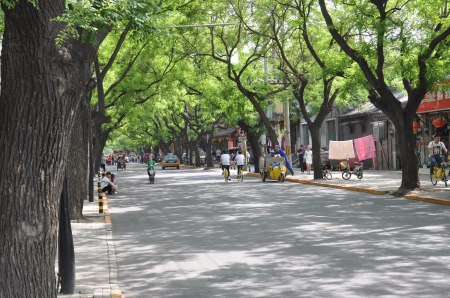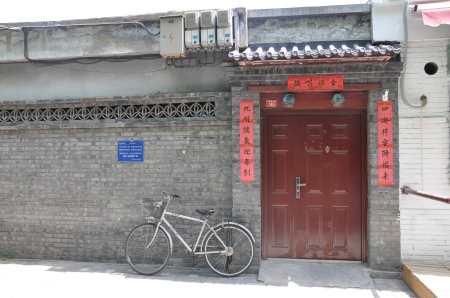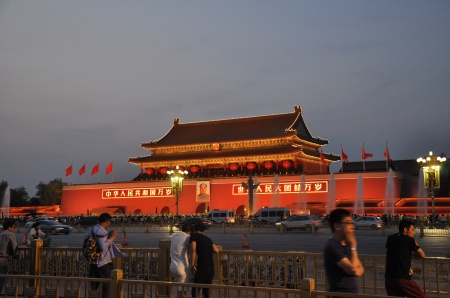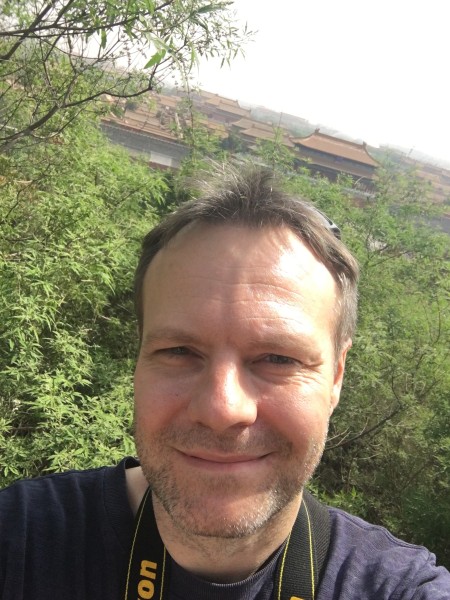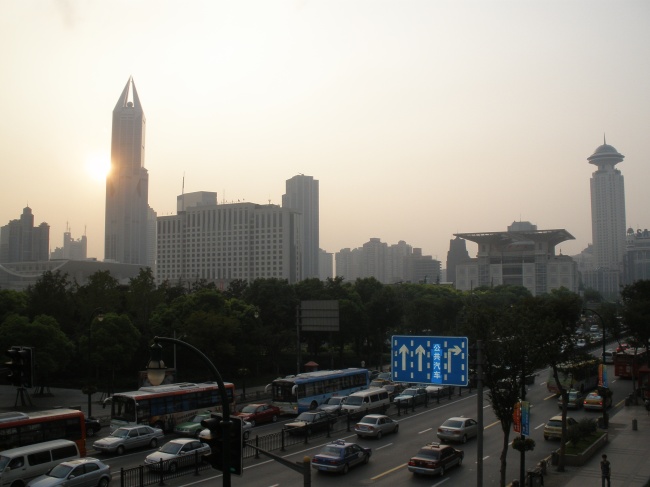
It’s rare for a day to go by without at least one big story on China in the news. Beyond the usual toddler’s head stuck in balcony/couch/escalator type stories – we’re constantly hearing about the rise (or potential fall) of the Chinese economy, the Chinese buying up big, investing everywhere, their hands in everything (or facing a gigantic housing crash -the housing issues in mainland China making those in Sydney & Melbourne paltry by comparison).
But with a country that’s super-charging into the future, the number of wealthy and middle-class Chinese more than ever before, just how fast is the country actually changing?
The answer is – not much; at least, if Beijing is anything to go by.
I am sure beneath the surface there have been considerable changes I’m unaware of, but from an outsider looking in, the changes I saw in Beijing were minuscule. It was practically the same city I visited 9 years ago, albeit with sprinkles of modernization across the board. Despite these changes, it still looked and moreso felt like the Beijing of 2008, when the city was gripped with excitement for the upcoming Olympic Games.
The first thing I noticed were the new subway stations – or rather, I was made aware of them by a friend prior to arriving. Had I not been told, I would likely not have even known, so well were they integrated. Beijing like most other Chinese cities already had a pretty solid transport network, but if anything its now even more connected making navigating the city via subway a breeze.
But speaking of mobility – one thing that was definitely not there last time were these new forms of hire bicycles. These bikes are literally everywhere, rentable for a small amount and unlocked via a smartphone app. There were three specific colours or brands of these bikes, the most noticeable being black and yellow. Coincidentally, just this past week these same bikes have shown up in Melbourne and I read Sydney, delivered by a Singapore company whose name escapes me. They work a treat in Beijing as they’re not only cheap, but the perfect alternative to the peak hour subway crush, or worse, the infamous Beijing car traffic. You’ll see the bikes everywhere, many in great tangled piles and in need of repair, but many more are on the roads. I saw everything from students to workers to even policemen using them. In China, anything goes. If its easy and provides mobility, then it’ll work. It’s the opposite in Melbourne where not wearing a helmet is a fineable offence – and of course there’s no such restriction in China, allowing you to literally jump on a bike, ride it to your destination and discard it. Piece of cake, and no helmet hair to boot!
I also noticed there were more public toilets dotted around – a benefit of the Olympic games. And in an amazing turn of events, many of these public toilets didn’t simply have lockable doors – but toilet paper dispensers also!!! For anyone whose traveled in China – carrying small packets of tissues in your pockets is essential (unless you have a magic, self-cleaning ass). I was in Beihai park, about to climb the mountain to the White Pagoda when I had this sudden rumble in my guts….then this horrible sinking feeling when I realised that I had completely forgotten to bring tissues with me……..ARGH!!! I turned around, beelined for the public toilets, my eyes on the bordering leaves and foliage (yes, it may have come to that) – and holy fucking Christ above, thank every god available there was a machine that dispensed toilet paper beside the basins. So thank you modern China for this heavenly innovation – if only it applied to the whole country.
Travel in China protip: carry tissues with you – everywhere!
The last time I was in Beijing, Chinese mobile phones resembled the old Nokia, pre-iPhone era phones (although they mostly used their own brands). These have been naturally replaced by iPhones – or moreso, android equivalents – and bigtime. The Chinese *love* their mobile phones. If you think us western folk are obsessed with them, we aint got nothing on the Chinese. It’s no surprise then that paywave type payment is everywhere.
But beyond these few modernizations, a few new shopping malls here and there, more large buildings in the CBD area – the city is very much the same as I remembered it. And everywhere I looked it was the same old China. I couldn’t help but laugh when I watched the local Beijing life going on around me. The western world’s opinion of China is almost purely coloured by the media, and I get this feeling that many westerners fear the Chinese. There’s this underlying anxiety that they’re going to take over the world. They’re buying up anything and everything. Their rich are snapping up our properties. Their government buying up our natural resources. They’re buying giant farms in distant countries(including Australia), shipping food back to the hungry masses who have an insatiable appetite for clean produce.
But back in China, on the streets and down the laneways, life goes on, as it has for thousands of years but these days with a slightly more modern twist. The sidewalks are still cracked. Everything is dusty, like it’s been there forever. Empty storefronts will be a new restaurant tomorrow, a florist next week, empty again next month.
It’s changing, there’s no doubt about that. The quality of life for millions of Chinese has improved significantly. But ultimately, I don’t think China will ever change. Not the true China that you see there on the streets. The thriving chaotic China that just somehow works. The China that I love and the China that to me feels like a second home.

